There is a saying—”If you have to put someone on a pedestal, put teachers. They are society’s heroes.”
Indeed, teachers are instrumental in shaping the minds of future generations. They are role models for many schoolchildren. They are the source of inspiration for many of us since childhood, helping us to think more widely and critically.
They manage to teach and bring out the best in children. During the 2020 war in Artsakh, Elina Balasanyan—my personal hero—was one of the bravest who brought books into a Stepanakert bunker and entertained children while the capital was under heavy shelling.
This article is a tribute to all of the brave and fearless young teachers of Artsakh, who have dedicated their lives to educating the new generation. Several of these teachers are members of Teach For Armenia, which is part of the Teach For All global network committed to expanding educational opportunities for all children. These young people moved from different parts of the homeland to the border villages of Artsakh, where they now consider themselves as part of those communities.
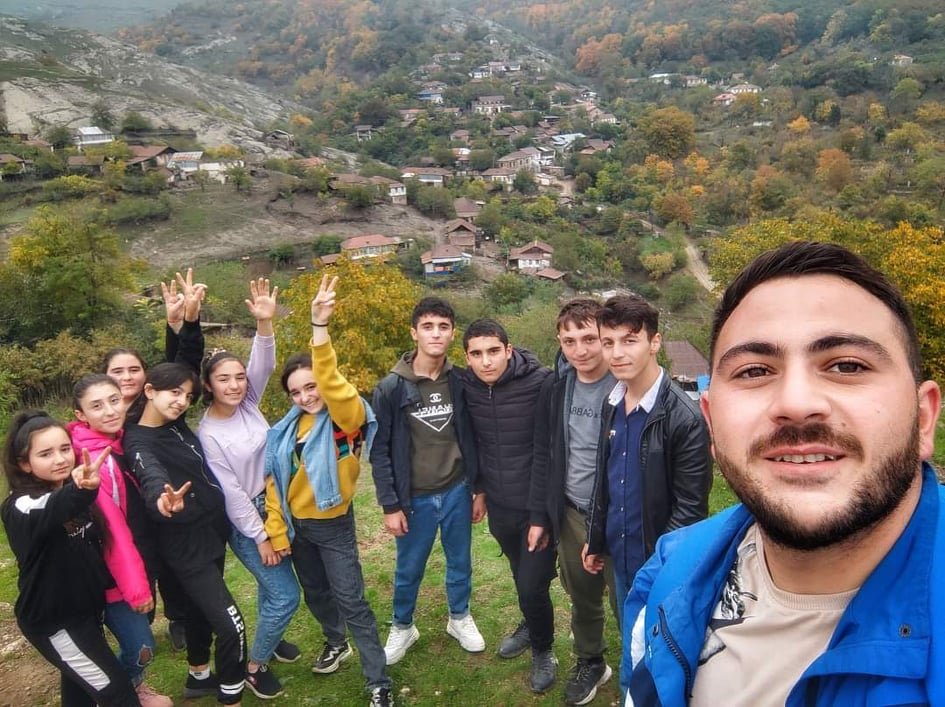
Ashot Gabrielyan is 21 years old and lives in the region of Askeran in Artsakh. He studied international relations at Yerevan State University and participated in the Erasmus+ educational program in Portugal.
“I decided to join the Teach For Armenia program immediately after the 2020 Artsakh War because I wanted to be in Artsakh, and this program was the best solution. I’m deeply convinced that all change should start from education. I moved to Kolkhozashen, a village in Martuni region with the hope that I will gain both personal and professional growth and help the community. My first impression of Kolkhozashen was amazing, as the village is surrounded by mountains and forests. It’s a village where I always imagined myself working. The people of Kolkhozashen have been very kind and friendly since the first moment I got here. They accepted me and helped with everything. My only difficulty is that my rental home is not equipped with the minimum necessities (bathroom and hot water), but these are nothing when you see motivated school children and members of the community, who give you the strength to support this village.
In addition to our primary academic curriculum, we have several community projects. One of them is Djane (ՋանԷ) center which is going to be a project incubator where students will gather and implement community projects. Another one is “Kolkhoz quest,” which was held over the weekend. We divided 10 interesting locations throughout the village which have rich historical and cultural heritage. Guests complete different tasks to learn more about Kolkhozashen. This initiative will help develop tourism in Kolkhozashen. We also have an installation called the “Human Rights Laundromat” at the school. This idea came when Artsakh was deprived of natural gas for almost a month in March; Azerbaijani military forces have been violating our rights to have a normal life. At that time, we were studying human rights in sociology class, so we decided to do laundry with human rights posters as a sign of purity. If laundering money means getting richer illegally, then a human rights laundromat is intended to remind everyone about our natural rights in this way.
My biggest achievements are my students. I have noticed after my arrival that they started studying even better. They love me and the subject, and they like spending time with me. Teaching is giving me hope for a good future. Working with the younger generation is a good motivation and gives hope that our future is in good hands. I’m in Artsakh with my beloved people, doing what I love. Big changes start with small steps. I will encourage my compatriots to start those changes within ourselves. Start taking steps in order to make our community, our village and our future better. With this, we can create the strong and prosperous motherland we are all dreaming of.”
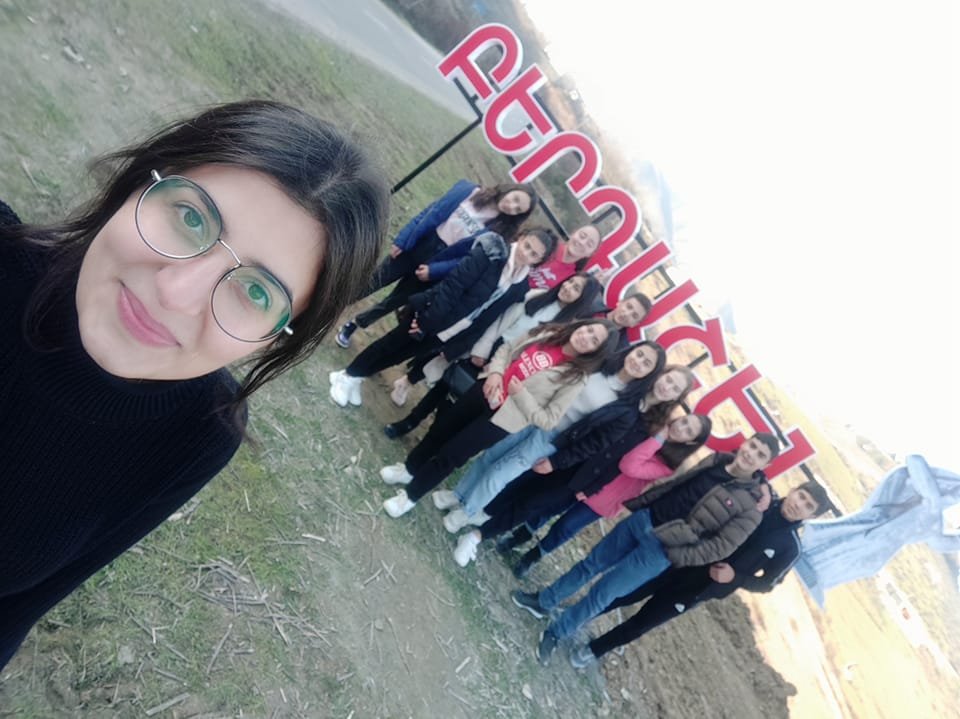
Shushanik Manukyan is 26 years old from Gyumri. She studied finance in the Gyumri branch of the Armenian State University of Economics.
“At my previous workplace, I was thinking a lot about what I can do to be useful to my motherland. I decided to become a teacher in the villages of Artsakh. I found myself in Berdashen village in the Martuni region, which is home to just over 200 schoolchildren. At first, I was a little surprised when they hired me for this job in this big school, as I didn’t have pedagogical experience. I have learned a lot from my high school students. I remember the first time I came to Berdashen. Although it wasn’t my first time in Artsakh, the road seemed endless to me. I felt like I was in an American movie, surrounded by deserted roads and somewhere in between, people had been laying down new asphalt which was going to lead me to Berdashen. I was only thinking about one thing at that moment, that my village would be as deserted as the road. Fortunately, I appeared in a place surrounded by the forests. My small house was right near that forest; I loved being close to nature.
Gaining the trust of the villagers was a challenge. I’m new here, but time puts everything in its place. I also had trouble finding a place to live. When I finally found a house, I realized there was no gas, no electricity and no running water. Despite the unavailability of these resources, I was warmed by the feeling that I was doing an important job in Artsakh. I lived in that house until September 27. Then, I started to live with a woman who is like a mother to me here in Berdashen. If I was given another chance, I would definitely choose Teach For Armenia again; it’s how I found the positive in every unfortunate situation and I started to instill this ideology with my students…to view circumstances from different angles. Together, we are using opportunities in the community to create projects in Berdashen. Berdashen Fest, for example, turned out to be bigger than we expected. The idea came to us a year ago, when it was proposed by two high school students. I wasn’t expecting such an initiative from young people who just witnessed a war. We presented this project to members of the community who agreed to finance it. I try to learn from my students every day. My contract is going to be over soon, but I’m trying to gain more wisdom and flexibility from my students, convincing myself that if they can do it, I also should do it. If they inspire me, that means they can teach me a lot.”
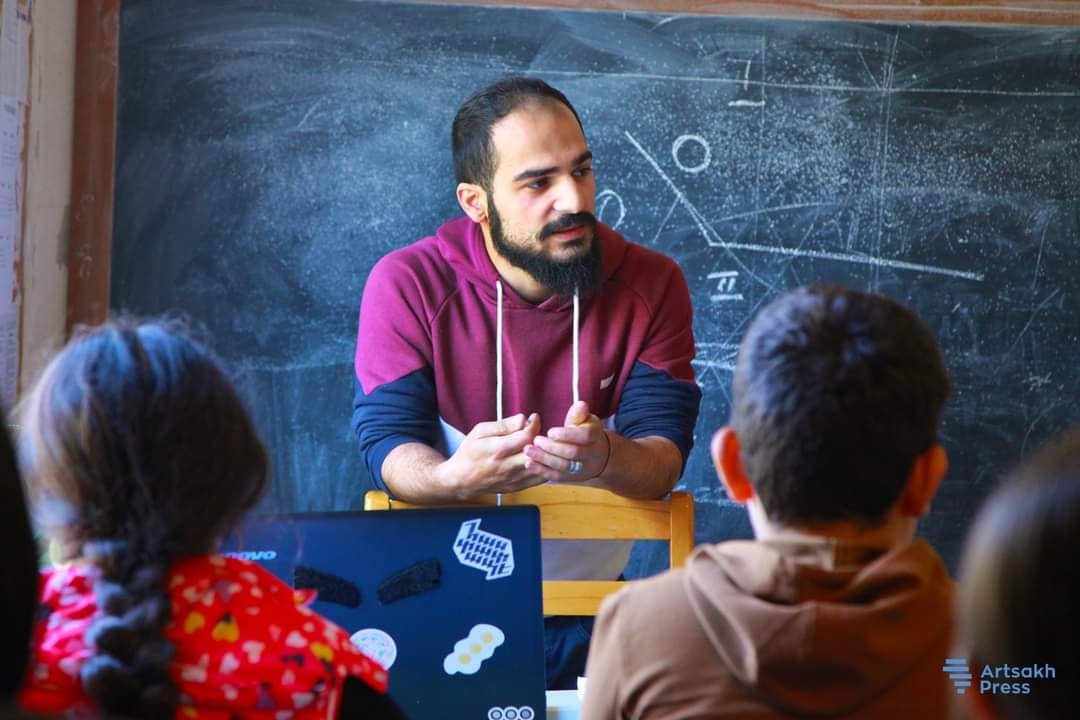
Poghos Galstyan is 25 years old from Yerevan. He studied applied mathematics, physics and astrophysics.
“After the 2020 Artsakh War, I was feeling guilty that I couldn’t participate in the war and didn’t help my people. When I saw the Teach For Armenia announcement, I decided immediately to join them. Teach For Armenia gave me a unique opportunity to live and teach in the picturesque village of Qolatak in the Martakert region. It wasn’t me who chose this village, but I’m happy for this choice. The village had been without a physics teacher for almost three years. I was very excited and happy to be in Qolatak. The villagers did everything to make me feel at home. I was amazed by this village and its rich historical and cultural heritage. Qolatak is home to the Koshik Anapat Monastery, Hakobavank Monastery, Eghetsi Khut Monastery and Kachaghakaberd Fortress. There’s an amazing community of people who are ready to embrace you like a member of their family. The living conditions, however, have been challenging. There is no gas in the village, and the water is carried from the springs. For a guy from Yerevan, this was difficult and unusual to me. But after some time, you understand that these are not difficulties but a way of life. My main achievement is the love and respect of my students. Every moment spent with my students is a great pleasure to me. Being a teacher isn’t a profession. It’s a calling and a mission.”
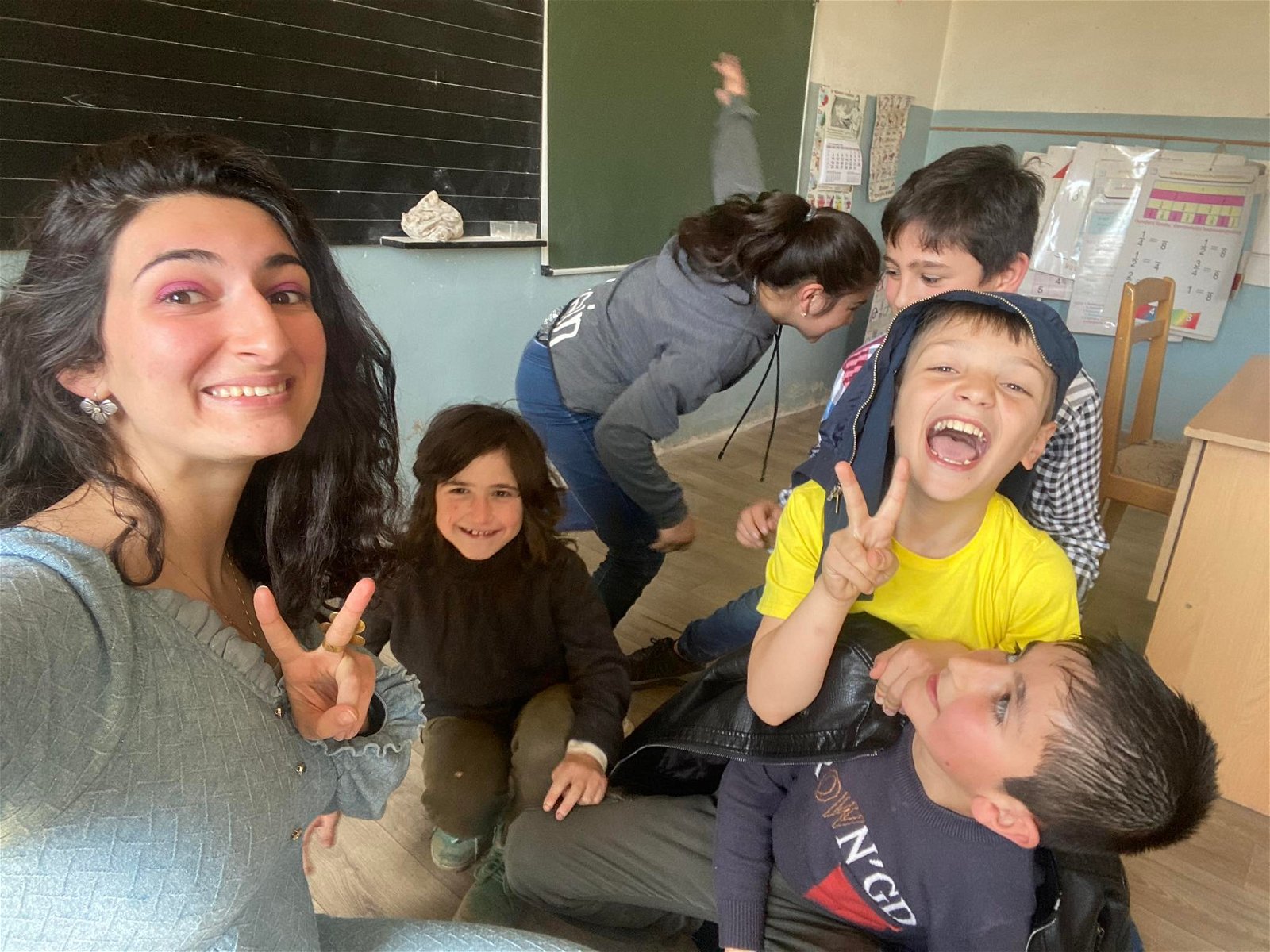
Nina Shahverdyan is 21 years old from Stepanakert. She studied English and communications at American University of Armenia.
“After graduation, I was thinking about how I can be more useful to Artsakh as post-war conditions here have been very difficult. This is why I decided to start teaching as I strongly believe that good education can change everything and give us a good future. I have faced many obstacles and challenges while teaching in Aghavno, a borderline village in the Lachin corridor. Despite the lack of motivation to make something and to learn something new among children and their parents, I have managed to cheer them up by bringing new interests to their everyday life. Good education can change Armenia. I was always thinking about this, but after teaching in Aghavno for almost a year, I’m deeply convinced of it. We must pay more attention to our education system in order to have well-educated generations and a brighter future.”
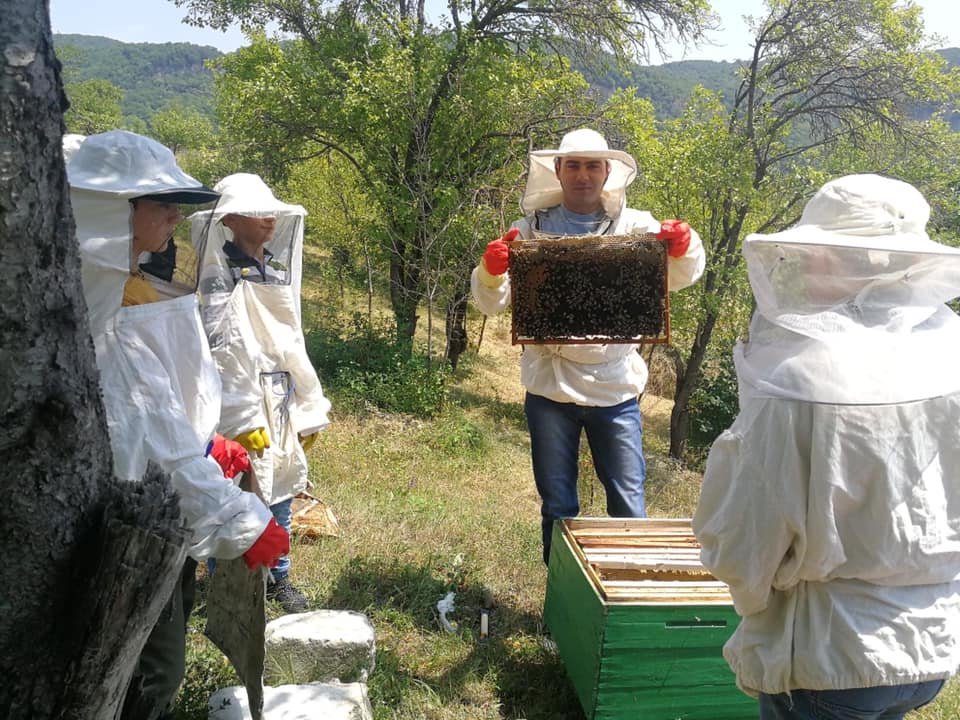
Arthur Kirakosyan is a 26-year-old historian from Gyumri.
“The idea of joining Teach For Armenia came spontaneously. As I started to learn about this project, I realized there were several points that matched my views on education that all children should be given the right to quality education. Teach For Armenia is meant to educate members of the future generation who will become leaders and outstanding members of their community or village in 25 years. This is how I found myself in Tsmakahogh village in Martakert region. Artsakh was unfamiliar to me; there were many things to think of and worry about. But the day I arrived, a calmness came over me as the villagers welcomed me with open arms. The headmaster and teachers accepted me as part of their family; we became friends. I never had difficulties with getting along with residents. Obviously, there were several problems in both daily life and in teaching, but they were manageable. In addition to academic programs, we are implementing community programs for the children. Last year, we started beekeeping classes with the help of Dream Foundation. Students are learning how to harvest their own eco honey. They are also learning how to garden, harvest, understand the soil and get closer to their community. The main achievement has been developing and maintaining a friendly atmosphere with the community and especially with my students. We are getting closer day by day. The most important thing is that they trust me and confide in me. The funniest thing is that they know me so well that whenever I want to get angry they start speaking with me in Gyumri dialect (ընկեր, մենք քեզ կսիրենք գԸ), and my anger fades. My term is coming to an end in a few months. I have mixed feelings of sadness and happiness. I’m happy that I was here and that I spent the most beautiful and energetic two years of my life here.”
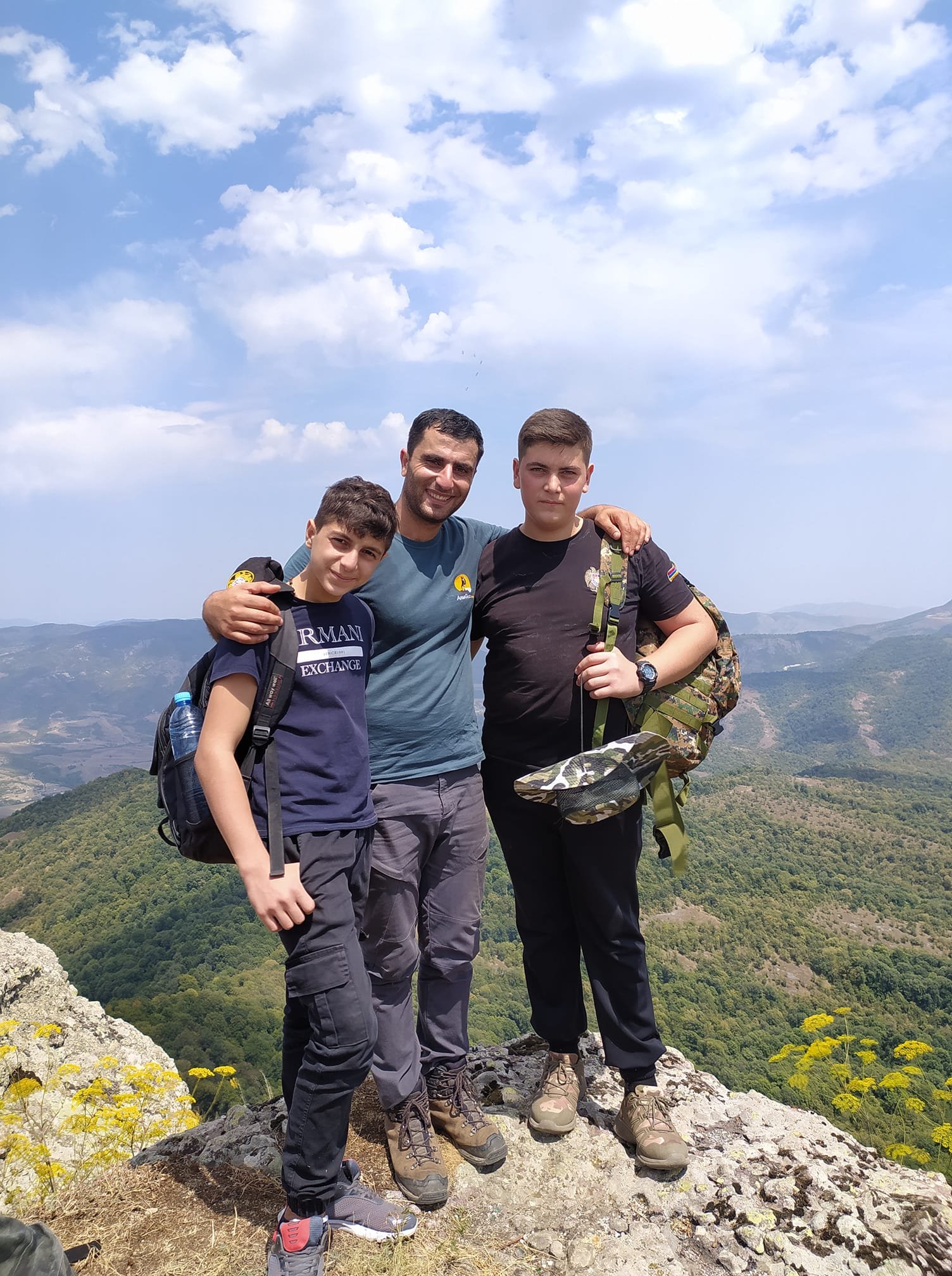
Artavazd Boyajyan is 28 years old from the Armenian province of Shirak. He studied informatics and applied mathematics.
“I was following Teach For Armenia’s Facebook page, but I wasn’t sure that I could be a good teacher. But when I read, ‘You can change at least one child’s life,’ I submitted a completed application on the last day of the deadline. In 2018, I started teaching in Stepanakert at Physmath school. When the contract was over, I decided to stay in Artsakh and moved to the village of Maghavuz in Martakert region, where I teach mathematics and informatics. My lack of experience caused many problems for sure, but time helped me change my perception of everything. I can name several achievements during these years, but the main one is that my students started reading books. In addition to teaching, I’m organizing hiking tours with my students. I have created many interesting and funny memories with them. There are also sad memories, as we went hiking to those places which are now occupied by Azerbaijan. We can’t go there right now. Since natural science subjects are low ranked at our schools, we decided to create a STEM lab in Maghavuz and Martakert. We are organizing an Artsakh STEM Expo to present the beauty of natural science subjects with the youth.”


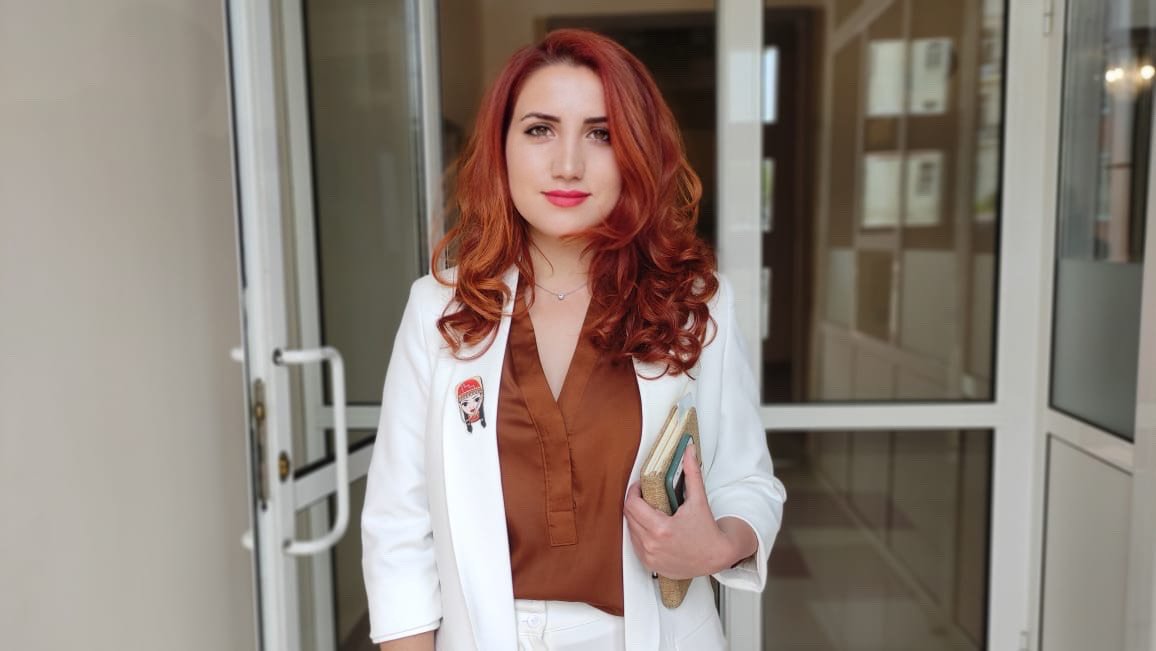
Be the first to comment